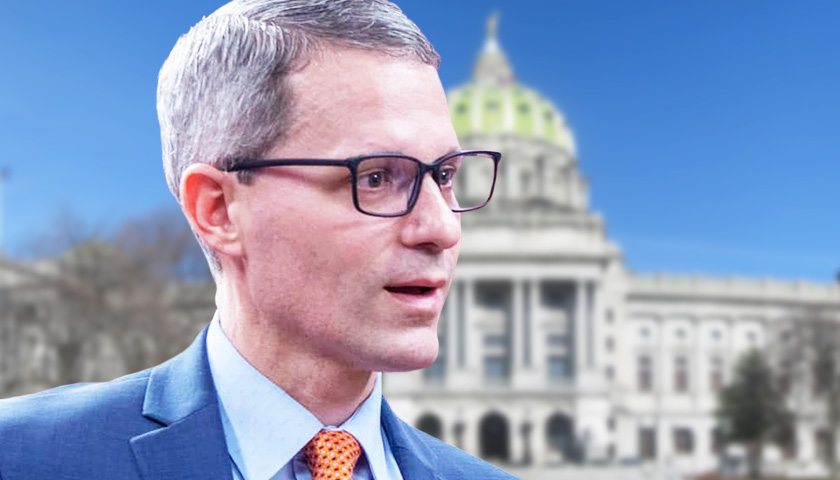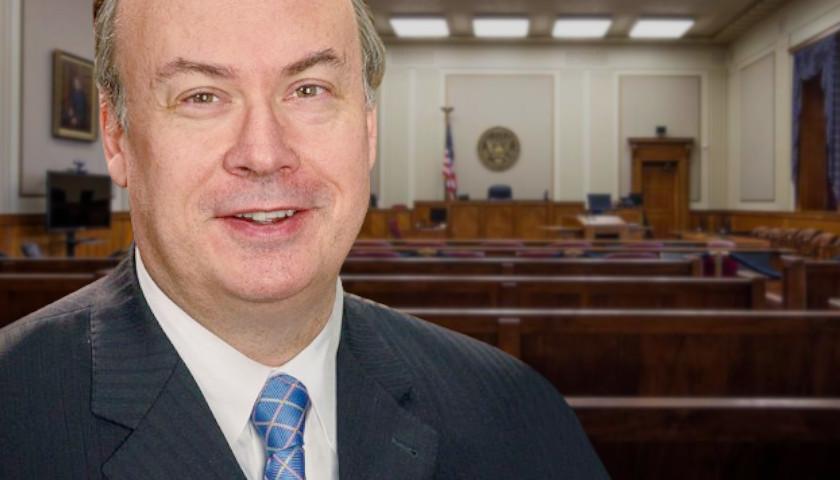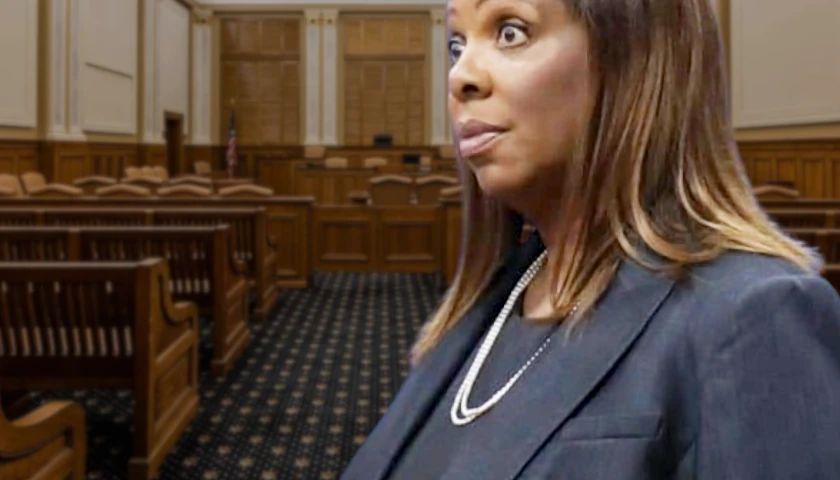Pennsylvania state Representative Rob Kauffman (R-Chambersburg) is preparing a bill to strengthen enforcement against Medicaid fraud, suggesting other legislation aimed at the problem would spur unneeded litigation.
Kauffman’s measure would exact triple damages when a court finds a care provider deliberately and improperly claimed funds from Medicaid, the federal-state healthcare program for low-income Americans. The bill would also empower the commonwealth’s inspector general to impose civil penalties on Medicaid scammers and dedicate new funds to the state attorney general’s Medicaid Fraud Control Unit.
“Due to the considerable amount of taxpayer money used to fund Medicaid and the vulnerable population the program benefits, it is important to ensure that taxpayer money is used to assist those in need,” Kauffman, the House Judiciary Committee’s minority chair, wrote in his proposal. “Each dollar siphoned away by fraud ends up harming a person truly in need who would have benefited from that support.”
Pennsylvania’s Medicaid program accounts for roughly one-third of all state spending, costing state taxpayers alone about $37 billion annually. Governor Josh Shapiro (D), in his previous job as state attorney general, estimated Medicaid fraud robs Pennsylvania of potentially $3 billion in public funds each year. Earlier this year, numerous House Republicans led by Minority Appropriations Chairman Seth Grove (R-York), proposed several measures to address such wrongdoing and encouraged the governor to back them.
One component of that package is the State False Claims Act which would work conjointly with the Federal False Claims Act. The latter, signed into law by Abraham Lincoln, entices private citizens to bring lawsuits against those alleged to have defrauded the U.S. government. If the plaintiff prevails, the defendant must pay the government three times the amount of the fraudulent claim and the private petitioner gains as much as a 30-percent share of the recovery.
A memo by Grove notes that, since 2007, the federal government has offered to increase a state’s share of its recovery regarding federal-state hybrid programs (e.g., Medicaid) by 10 percent if the state adopted a false claims act (FCA). At least 31 states and the District of Columbia have done so.
Grove said he views such “whistleblower” measures as a uniquely effective tool to address fraud and touted the national FCA as having recovered $31.3 billion for the federal Treasury between 2009 and 2016.
“Whistleblower laws are important in fighting and weeding out fraud, as many fraud schemes are only discovered through a whistleblower as they exploit internal control functions of state programs,” Grove told The Pennsylvania Daily Star in an emailed statement.
In describing his own bill, Kauffman (pictured above) obliquely mentioned Grove’s proposal and declared the former would have unwelcome consequences.
“Unlike ‘bounty hunter’ bills which incentivize private lawsuits searching for settlements — unfortunately resulting in a share of unnecessary lawsuits that drive up our health care providers’ costs while delivering windfalls to those plaintiffs’ lawyers — this bill will rely on our state’s law enforcement professionals to get at the root of Medicaid fraud,” Kauffman wrote.
The nonprofit Pennsylvania Coalition for Civil Justice Reform (PCCJR) also opposes the FCA. Former state Representative Curt Schroder (R-Exton), the coalition’s executive director, said that while the federal law already fuels litigiousness that can harm innocent Medicaid claimers as well as guilty ones, a state act would intensify the problem. That is because the state legislation would double the recovery bestowed on the private petitioner in the event of a win or a settlement.
That double recovery, he suggested, would also make a state FCA a fiscal mistake for the commonwealth, since a successful private plaintiff would get as much as 30 percent of the funds coming back to both the state and the federal government.
“Once the headhunter, the qui tam plaintiff, takes their 25 to 30 percent, the state is actually recovering less in most cases than had they just gone under the federal False Claims Act and not enacted a state act,” Schroder said.
Meanwhile, PCCJR is concerned that many cases brought by nongovernment petitioners don’t even target real fraud because the plaintiff expects the corporate defendant will want to unburden itself by settling. Exacerbating that concern is a provision in the federal act and in some previously introduced versions of the commonwealth proposal stating actual fraud needn’t be proven.
“Whether they’ve done something bad or egregious or not, the fact that a false-claim [suit] has been brought against them…, it forces them to settle,” Schroder explained. “It’s literally a sue-and-settle scheme because the risk is so high of a devastating verdict once you factor in all of the penalties per claim or per occurrence, the treble damages, the attorneys fees that get paid… [and] other aspects of it…. It just becomes so prohibitive for companies to fight that they just end up throwing their hands up and settling.”
He said Kauffman’s legislation avoids the objections that tort reformers raise regarding FCAs.
“It would get to the root of the problem, Medicaid fraud, without encouraging litigiousness and giving all kinds of the wrong type of incentives for people to bring lawsuits and to clog the courts with lawsuits,” he said.
While Grove did not endorse Kauffman’s bill outright, he anticipated the two will work together to combat purposely improper Medicaid claims.
“As the Office of Inspector General testified that [the Pennsylvania Department of Human Services] has a 40% fraud error rate, I look forward to working with Chairman Kauffman on enhancing the abilities of both OIG and the Attorney General’s office,” Grove wrote. “Neither office requested major funding increases for their anti-fraud programs. I agree with Chairman Kauffman it is worthy to review each agency’s funding level and ensure each entity has the resources it needs to fight fraud.”
– – –
Bradley Vasoli is managing editor of The Pennsylvania Daily Star. Follow Brad on Twitter at @BVasoli. Email tips to [email protected].
Photo “Rob Kauffman” by Rob Kauffman. Background Photo “Pennsylvania Capitol” by Ruhrfisch. CC BY-SA 4.0.







